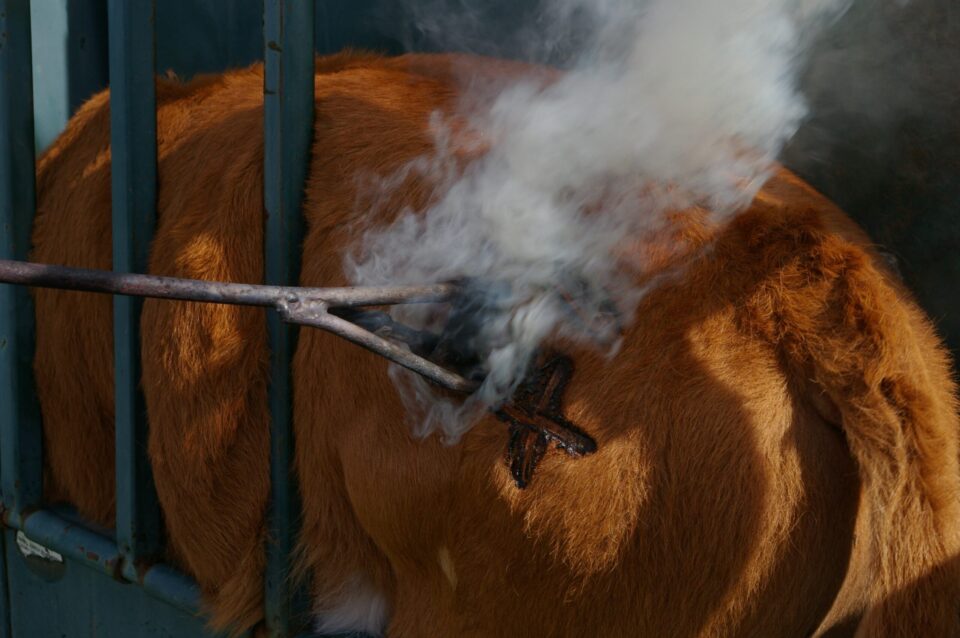As the national FMD vaccination drive gathers pace, branding becomes critical to safeguard trade, tracking, and livestock health
With South Africa’s nationwide foot-and-mouth disease (FMD) vaccination campaign in full swing, the Department of Agriculture has issued a strong reminder to all livestock stakeholders: branding of vaccinated cattle is mandatory.
According to Minister of Agriculture John Steenhuisen, all cattle that receive the FMD vaccine must be hot-branded with the letter ‘F’ on the neck immediately after inoculation. This measure, stipulated in the Animal Diseases Act (Act 35 of 1984), serves as visible proof of vaccination and plays a vital role in tracking disease control measures.
“This is not a recommendation—it is a legal requirement,” said Minister Steenhuisen. “Branding helps us clearly distinguish between vaccinated animals and those that may be infected, which is crucial in avoiding false alarms and unnecessary quarantines.”
The Risks of Skipping Branding
Vaccinated animals produce antibodies that can result in false-positive test results during routine surveillance. If such animals are not visibly marked, the absence of branding can lead to confusion, trigger costly containment protocols, and place undue pressure on FMD-free zones.
“Branding is essential for managing disease outbreaks and maintaining our livestock export status,” Steenhuisen added.
A State-Controlled Operation
As FMD is a state-controlled disease, only government veterinary officials are authorised to administer the vaccine and perform branding. The ongoing campaign is deploying imported trivalent vaccines to targeted zones, with plans to roll out doses to additional high-risk areas in the coming weeks.
The Department of Agriculture has reiterated that branding is a core component of the campaign’s compliance framework.
“State veterinarians are responsible not just for vaccination, but for ensuring proper branding,” the department confirmed in correspondence to SubSahara Farmers Journal.
Branding Compliance Gaps Cause Concern
Despite the legal mandate, concerns are growing over lapses in branding. Speaking to SubSahara Farmers Journal, Dr Ariena Shepherd, head of the KwaZulu-Natal Animal Health Forum, warned that many vaccinated cattle are not being branded.
“This oversight introduces serious risks to disease tracking and control efforts,” she said. “Unbranded vaccinated cattle, particularly if moved illegally, could be mistaken as infected and lead to trade disruptions or unnecessary quarantines.”
Shepherd also pointed to a shortage of manpower, a lack of awareness, and the absence of viable slaughter markets for vaccinated cattle as major hurdles to compliance.
Economic Disincentives Undermine Efforts
In some communities, farmers are reluctant to have their animals branded because vaccinated cattle often face limited market access, especially in formal slaughterhouses. Shepherd stressed the urgent need for government to open up slaughter and sale opportunities for these animals to incentivise compliance.
“Farmers fear losing economic value. If branding meant better access to formal markets, compliance would be much higher,” she said.
Call for Vigilance and Industry Collaboration
The Red Meat Producers’ Organisation (RPO) has called on all industry players to report any cases of vaccinated cattle not being branded.
“The entire red meat value chain is at risk if we don’t follow the rules,” the RPO noted in a statement.
The Department of Agriculture echoed this sentiment, calling on farmers, veterinarians, transporters, auctioneers, and abattoirs to remain fully compliant and vigilant.
“This is a critical stage in our national response to FMD. Collective action and strict adherence to regulations are essential for success,” the department concluded.
Sidebar: Why Branding Vaccinated Cattle Matters
-
Prevents false-positive test misinterpretation
-
Reduces the risk of unnecessary quarantines
-
Supports traceability across the value chain
-
Complies with legal obligations
-
Safeguards local and export markets



